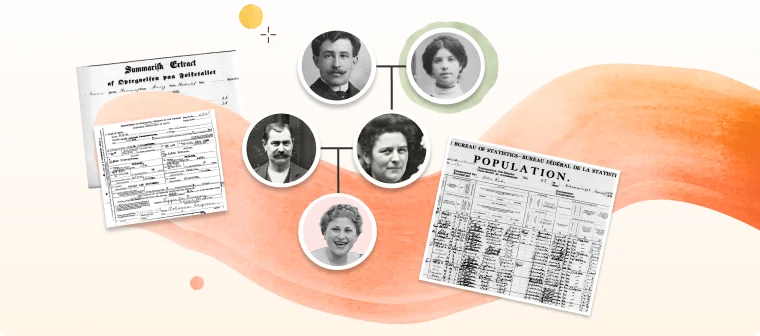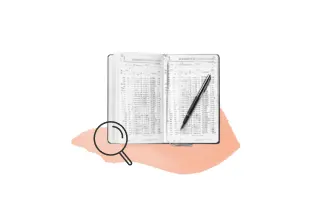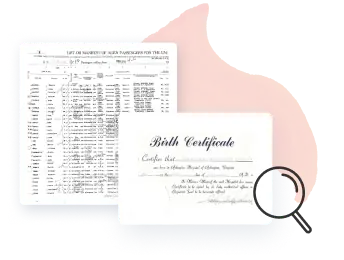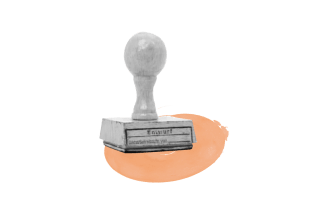Name Directory by Last Name: Last Names Starting with Ea
Explore millions of names to discover rich genealogical details and uncover your family's history
Enter a name to research
Last name meanings and origins
- Eaton
The surname Eaton has its historical roots in England, deriving from the Old English elements "ea," meaning "river," and "tun," meaning "enclosure" or "settlement." This suggests that the name originally referred to someone who lived near a river settlement. The earliest recorded instances of the surname date back to the 12th century, with variations appearing in different regions, particularly in the counties of Cheshire and Lancashire.
- Eastwood
The surname Eastwood has its historical origins in England, particularly in the region of Yorkshire, where it is believed to have first appeared in the medieval period. The name is derived from the Old English elements "east," meaning "eastern," and "wudu," meaning "wood," suggesting a geographical feature that may have referred to a wooded area located to the east of a settlement.
- Eastman
The surname Eastman has its historical roots in England, with its earliest appearances dating back to the medieval period. The name is derived from the Old English term "ēast," meaning "east," combined with "man," which refers to a person or individual.
- Earle
The surname Earle has its historical roots in England, deriving from the Old English term "eorl," which means "nobleman" or "chief." The name first appeared in the medieval period, particularly in the 12th century, as a title for those of high rank or nobility. Over time, it evolved into a hereditary surname, often associated with landowners and individuals of significant social standing.
- Easton
The surname Easton has its historical roots in England, with its earliest appearances dating back to the medieval period. The name is derived from the Old English elements "ēast," meaning "east," and "tūn," meaning "town" or "enclosure." This suggests that the surname originally referred to someone who lived in or near an eastern settlement or town.
- Early
The surname Early has its historical roots primarily in England, with its origins tracing back to the Old English word "earlic," which means "early" or "foremost." This surname likely emerged as a nickname for someone who was an early riser or perhaps held a position of prominence in their community. The earliest recorded instances of the surname date back to the medieval period, with variations appearing in different regions.
- East
The surname East has its historical roots in the Old English word "ēast," which means "east" or "eastern." It is believed to have originated as a topographical surname for someone who lived to the east of a settlement or perhaps as a directional indicator for those traveling. The earliest records of the surname date back to the medieval period in England, where it was often associated with individuals who held specific roles in society, such as landowners or farmers in the eastern regions of the country.
- Eason
The surname Eason has its historical roots primarily in England, with its earliest appearances dating back to the medieval period. It is believed to be a variant of the surname "Eason," which itself is derived from the Old English personal name "Eadson," meaning "son of Ead," where "Ead" translates to "wealth" or "fortune." Over time, the surname evolved, with its bearers often associated with various occupations, including farming and trade, reflecting the agrarian society of medieval England.
- Earnhardt
The surname Earnhardt has its historical roots in the Germanic and Anglo-Saxon traditions, with its earliest appearances traced back to medieval Europe. The name is believed to derive from the Old High German elements "ern," meaning "eagle," and "hart," meaning "hardy" or "brave." This suggests that the original bearers of the surname may have been associated with qualities of strength and nobility, possibly linked to the imagery of the eagle as a symbol of power and freedom.
- Easley
The surname Easley has its roots in England, with historical documentation tracing its origins back to the medieval period. The name is believed to derive from the Old English elements "eas," meaning "ash tree," and "leah," meaning "clearing" or "meadow." This suggests that the name originally referred to someone who lived near a clearing in a forest where ash trees were prevalent.
- Easter
The surname Easter has its historical roots in the Old English word "ēastre," which refers to the spring season and is associated with the festival of Easter, celebrating the resurrection of Jesus Christ. The name likely originated in England, with its earliest recorded instances appearing in the medieval period.
- Eames
The surname Eames has its historical roots in England, with its earliest appearances dating back to the medieval period. It is believed to be derived from the Old English personal name "Eama," which means "a descendant of Eama" or "son of Eama." The name likely developed as a patronymic surname, indicating lineage and familial connections.
- Eagle
The surname Eagle has its historical roots in England, where it is believed to have originated as a nickname for someone who exhibited qualities associated with the bird, such as keen vision or bravery. The name likely emerged during the medieval period, with its first recorded instances appearing in the 13th century.
- Eagan
The surname Eagan has its roots in Ireland, deriving from the Gaelic name "O' hEaghain," which means "descendant of Eaghain." The name Eaghain itself is believed to be derived from the word "eagh," meaning "a young warrior" or "a youthful person." The surname first appeared in historical records in the 11th century, primarily in the province of Munster, where the Eagans were associated with the ancient kingdom of Desmond. Over time, the Eagan family became known for their roles as landowners and local leaders, often involved in the agricultural and political life of their communities.
- Earp
The surname Earp has its historical roots in England, with its earliest appearances dating back to the medieval period. The name is believed to derive from the Old English word "earp," which means "spear" or "warrior," suggesting that the original bearers of the surname may have been associated with martial roles or occupations.
- Earley
The surname Earley has its historical roots in England, particularly in the region of East Anglia. It is believed to derive from the Old English personal name "Eorla," meaning "nobleman" or "warrior," combined with the suffix "-ley," which denotes a clearing or meadow.
- Eaves
The surname Eaves has its historical roots in England, particularly deriving from the Old English word "eaf," which means "river bank" or "river edge." This suggests that the name may have originally been a topographical surname for individuals living near a riverbank or a similar geographical feature. The earliest recorded instances of the surname date back to the medieval period, with variations appearing in different regions.
- Earhart
The surname Earhart has its historical roots in England, with its earliest appearances dating back to the medieval period. The name is believed to be derived from the Old English personal name "Eardhard," which combines elements meaning "earth" and "hardy" or "brave." This suggests that the original bearers of the surname may have been associated with qualities of strength and resilience, possibly reflecting the characteristics valued in the agrarian societies of early England.
- Earnshaw
The surname Earnshaw has its historical roots in England, particularly in the northern regions, with its earliest appearances dating back to the medieval period. The name is believed to be derived from the Old English elements "earn," meaning "eagle," and "shaw," meaning "a copse or thicket." This suggests that the original bearers of the surname may have lived near a wooded area frequented by eagles, or they may have been associated with the qualities of strength and nobility attributed to the bird.
- Eads
The surname Eads has its historical roots in England, with its earliest appearances dating back to the medieval period. The name is believed to derive from the Old English personal name "Ead," which means "wealth" or "fortune," combined with the suffix "-s," indicating "son of" or "descendant of." This suggests that the original bearers of the surname may have been associated with wealth or prosperity, either through land ownership or successful trades.
- Earnest
The surname Earnest has its roots in the Old French name "Ernest," which itself derives from the Germanic name "Ernust," meaning "serious" or "resolute." The name first appeared in England after the Norman Conquest of 1066, as many French names were adopted by the English nobility and commoners alike. Over time, the surname evolved, with variations such as Earnest, Ernest, and Ernist emerging.
- Eades
The surname Eades has its historical roots primarily in England, with its earliest appearances dating back to the medieval period. The name is believed to be derived from the Old English personal name "Ead," which means "wealth" or "fortune," combined with the diminutive suffix "-es," indicating "son of" or "descendant of." This suggests that the original bearers of the surname may have been associated with wealth or prosperity, either through their lineage or occupation.
- Eager
The surname Eager has its historical roots primarily in England, where it is believed to have originated as a nickname derived from the Middle English word "eager," meaning keen or sharp. This term was often used to describe individuals who exhibited enthusiasm or intensity in their pursuits, whether in work or personal endeavors.
- Eakin
The surname Eakin has its historical roots primarily in Ireland, particularly in the province of Ulster. It is derived from the Gaelic name "O'Eachain," which means "descendant of Eachan," with "Eachan" translating to "little horse." The surname first appeared in historical records in the 12th century, associated with the Gaelic nobility.
- Eastham
The surname Eastham has its historical roots in England, particularly in the region of Cheshire. The name is derived from Old English elements, where "East" refers to the direction and "ham" means a homestead or village, suggesting that the original bearers of the name may have lived in or near a settlement located to the east of a notable landmark.
- Eadie
The surname Eadie has its historical roots primarily in Scotland, where it is believed to have originated as a diminutive form of the name "Ead," which is derived from the Old English word for "wealth" or "fortune." The name first appeared in historical records during the medieval period, particularly in the regions of the Scottish Highlands and Lowlands. Over time, the surname evolved, with various spellings such as Eady and Edie emerging, reflecting the phonetic variations of the Scots language.
- Eade
The surname Eade has its historical roots primarily in England, with its earliest appearances dating back to the medieval period. It is believed to be derived from the Old English personal name "Ead," which means "wealth" or "fortune." The name likely evolved as a patronymic surname, indicating lineage or descent from an ancestor named Ead.
- Eakins
The surname Eakins has its historical roots primarily in England and Scotland, with its earliest appearances dating back to the medieval period. The name is believed to be a diminutive form of the given name "Eak," which itself is derived from the Old English word "eaca," meaning "a young goat" or "a kid." This suggests that the surname may have originally been associated with pastoral occupations or rural life, where livestock played a significant role.
- Eagles
The surname Eagles has its historical roots in England, where it is believed to have originated as a nickname for someone who exhibited qualities associated with the bird, such as strength, courage, or keen vision. The name likely emerged during the medieval period, a time when surnames began to be adopted more widely, often reflecting personal characteristics, occupations, or geographical features.
- Earls
The surname Earls has its historical roots in England, deriving from the Old English term "eorl," which means "nobleman" or "chief." The title of "earl" was used in Anglo-Saxon England to denote a high-ranking noble, often governing a specific region or territory. The surname likely emerged in the medieval period, around the 11th century, as a hereditary title became more common, signifying the social status and land ownership of those who bore it.
- Easterling
The surname Easterling has its historical roots in medieval England, deriving from the Old English term "ēastre," which refers to the spring season, particularly the festival of Easter. The name likely originated as a nickname for someone born during the Easter season or associated with the celebration of Easter, which was a significant event in the Christian calendar.
- Eales
The surname Eales has its historical roots in England, with its earliest appearances dating back to the medieval period. It is believed to be derived from the Old English personal name "Ealh," which means "foreigner" or "stranger," combined with the suffix "-es," indicating "son of." This suggests that the name may have originally been used to denote someone who was an outsider or had foreign ancestry.
- Eagleton
The surname Eagleton has its historical roots in England, with its earliest appearances dating back to the medieval period. The name is believed to be derived from a combination of Old English elements, where "eagle" refers to the bird of prey, symbolizing strength and nobility, and "ton," meaning a settlement or town.
- Ealy
The surname Ealy has its historical roots primarily in England, with variations also found in Ireland and Scotland. The name is believed to derive from the Old English word "ealh," meaning "temple" or "sacred place," suggesting that the original bearers may have lived near a church or a significant religious site.
- Eady
The surname Eady has its historical roots primarily in England, where it is believed to have originated as a variant of the Old English personal name "Ead," meaning "wealth" or "fortune." The name likely first appeared in the medieval period, with records indicating its use as a given name before evolving into a surname. Over time, individuals bearing the surname Eady may have been associated with various occupations, including farming or trade, reflecting the agrarian and mercantile society of medieval England.
- Easterly
The surname Easterly has its historical roots in England, where it is believed to have originated as a locational surname. It likely derives from the Old English term "ēast," meaning "east," combined with "leah," which refers to a clearing or meadow.
- Eastland
The surname Eastland has its historical roots in England, with its earliest appearances dating back to the medieval period. The name is believed to derive from the Old English elements "east," meaning "east," and "land," referring to territory or land.
- Eardley
The surname Eardley has its historical roots in England, with its earliest appearances traced back to the medieval period. The name is believed to derive from a place name in Staffordshire, which itself may have Old English origins, meaning "Eard's wood" or "Eard's clearing." The name Eardley likely developed as a locational surname, indicating that the original bearers were from a specific geographic area.
- Eaker
The surname Eaker has its historical roots primarily in England, where it is believed to have originated as a variant of the surname "Eaker" or "Eckers," which may derive from the Old English word "eac," meaning "oak." This connection to oak trees suggests a link to strength and endurance, traits that may have been valued by those who originally bore the name. The surname likely first appeared in the medieval period, with its bearers often associated with agricultural or rural occupations, reflecting the agrarian society of the time.
- Easler
The surname Easler has its roots in the English language, likely deriving from the Old English word "eas," which means "east." This suggests a geographical origin, possibly indicating that the original bearers of the surname lived in or were associated with eastern regions of England. The surname may have first appeared in the medieval period, with records indicating its presence in various forms throughout the centuries.
Start your family tree for free
Start by entering a few names and MyHeritage will do the rest, so you can make meaningful discoveries

Explore historical records

Explore 1,810,427,080 census and voter list records to get a detailed snapshot of your ancestors' lives. Discover names, ages, occupations, family relationships, residences, and much more.

Explore 4,647,704,406 birth, marriage, and death records. Uncover valuable details about major family milestones and find names, dates, places, occupations, and residences of your ancestors and relatives.

Search 266,544,192 military records and discover the stories of courage and resilience in your family history. Military records include enlistment dates, ranks, locations, and even physical descriptions.
Embark on a fascinating journey to discover your family history

Start by adding a few names. Myheritage's automatic matching technology will help you expand your family tree and delight you with new discoveries.

Reveal your ethnic origins and find relatives you never knew existed with our simple DNA kit.

Dive into MyHeritage's international collection of 36.7 billion historical records - start with a name of an ancestor and see what our collections can reveal about your family history.
About MyHeritage

MyHeritage is the leading global platform for family history. It enriches the lives of people worldwide by enabling them to uncover more about themselves and where they belong. With a suite of intuitive products, billions of historical records, an affordable at-home DNA test, and AI-powered photo tools, MyHeritage creates a meaningful discovery experience that is deeply rewarding. The MyHeritage platform is enjoyed by tens of millions of people around the world who treasure and celebrate their heritage.








